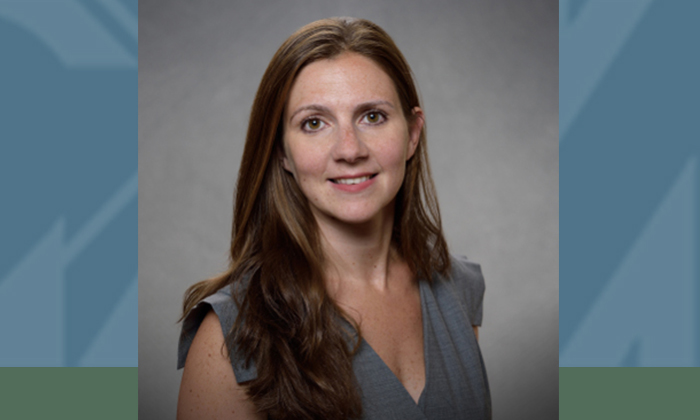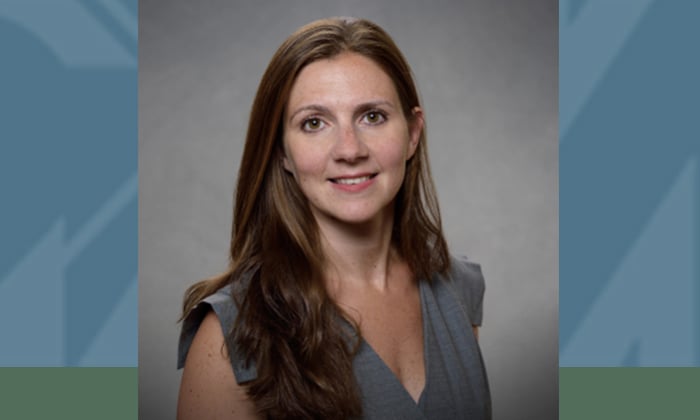 Reproductive Endocrinology & Infertility Fellow Brings a Perspective of Questioning & Learning to Infertility Treatment"
class="bg-img"
fetchpriority="high"
loading="eager"
decoding="async">
Reproductive Endocrinology & Infertility Fellow Brings a Perspective of Questioning & Learning to Infertility Treatment"
class="bg-img"
fetchpriority="high"
loading="eager"
decoding="async">
Written By: Dr. May-Tal Sauerbrun-Cutler on August 14, 2020

May-Tal Sauerbrun-Cutler, MD, recently completed her fellowship in reproductive endocrinology & infertility (REI) and joined Women & Infants Fertility Center as a fertility specialist. With her in-depth sub-specialty training, along with being a mom herself, Dr. Sauerbrun-Cutler finds great joy in helping women start and build families. In this blog, she explains how, as a fellow, she contributed a unique perspective to the practice.
It’s kind of funny that I was called a fellow when I am a mom of two young children and an obstetrics and gynecology medical doctor. Fellow is actually an academic term for a graduate student who is awarded the opportunity to continue post-graduate studies.
In OB/GYN, a fellow is a physician who finished a four-year general residency and wants to subspecialize. In my case, I want to specialize in reproductive endocrinology and infertility, the diagnosis and treatment of hormonal issues and infertility
There are 43 possible REI fellowship programs in this country, and I applied to several in the Northeast. I met with faculty and staff at various clinics and ranked them in order of my choice. Those clinics also ranked potential candidates in their preferred order. Those that align are matched. I was happy to match with Women & Infants Fertility Center because it was close to Boston, where I was living.
A fellowship involves spending one-to-four more years training after graduate school, including research and practice in clinical settings. I recently completed my third-year of my fellowship at The Center and joined the faculty as a reproductive endocrinologist and infertility specialist.
I am a mom of young children, and it’s just one of the best feelings in the world to have a family and children. Helping to start or continue to grow families is a wonderful feeling. It’s such a gift.
As a fellow, I spent half of the last three years treating infertility patients here and working with the fertility specialists. The other half of my time I spent in a lab researching the role of immune cells in infertility, specifically regulatory T-cells in the endometrium, the innermost lining of the uterus.
Immune cells contain factors that could help determine which women will conceive and which won’t. One of my studies found that when there are too few regulatory T-cells in the endometrium during an infertility treatment cycle prior to embryo transfer, the pregnancy rate will be decreased.
What I learned from my research gives me perspective that I can share daily with my patients. While my T-cell findings are still preliminary, I do understand that reproductive immunology could play a role in some of the disorders we treat.
This is an important consideration, say, for patients who suffer recurring implantation failures and we don’t know why, and I can share my knowledge with them.
I believe patients should want medical care and treatment that are grounded in evidence, data and outcomes of well-designed clinical trials. Women struggling with infertility would do well to seek treatment from a practice that has fellows on staff because fellows are in the process of researching and studying the specialty.
Fellows help keep a practice on its feet. Fellows ask a lot of questions and bring new data to the attending physicians. It keeps everyone learning, which I think ultimately improves the care of patients because everyone is up to date with the most recent information, studies and theories.
In the fertility field, there are so many unknowns and reproductive disorders that we don’t always know how to best treat yet. Getting treatment in an environment of learners, where everything is done for a reason and there is data to support each treatment recommendation, allows patients to experience the latest and most comprehensive care.
Fellows treat patients while helping others in the practice to keep perspective. They are constantly questioning things, looking up information and discussing their findings with attending physicians and staff. Plus, patients get two for the price of one with a fellow on staff: two doctors following their care delivery and checking everything.
My passion has always been working in women’s health. I volunteered at a women’s health clinic in Israel when I was a college undergraduate. During my medical training, also in Israel, I really grew attached to this field. I love working with women and those who are trying to get pregnant.
I particularly feel good about what I do when I can help oncology patients preserve their fertility and freeze eggs or embryos prior to undergoing cancer treatment. This technology has been improved only in the last five to ten years. Now we can help women of reproductive age feel reassured that having a family may still be possible. I feel so happy helping people in a way we never could before.
Now that I am full time as faculty, I will be doing the work of a reproductive endocrinologist and infertility specialist. I’ll be seeing patients who have concerns about infertility or issues concerning the thyroid, hypothalamic pituitary axis, uterus or ovaries.
I will also become an assistant professor, teaching residents and medical students. I am looking forward to this next phase of my career.
Disclaimer: The content in this blog is for informational and educational purposes only and should not serve as medical advice, consultation, or diagnosis. If you have a medical concern, please consult your healthcare provider or seek immediate medical treatment.
Send Us A Message
90 Plain Street,
Providence, RI 02903
Copyright © 2026 Care New England Health System